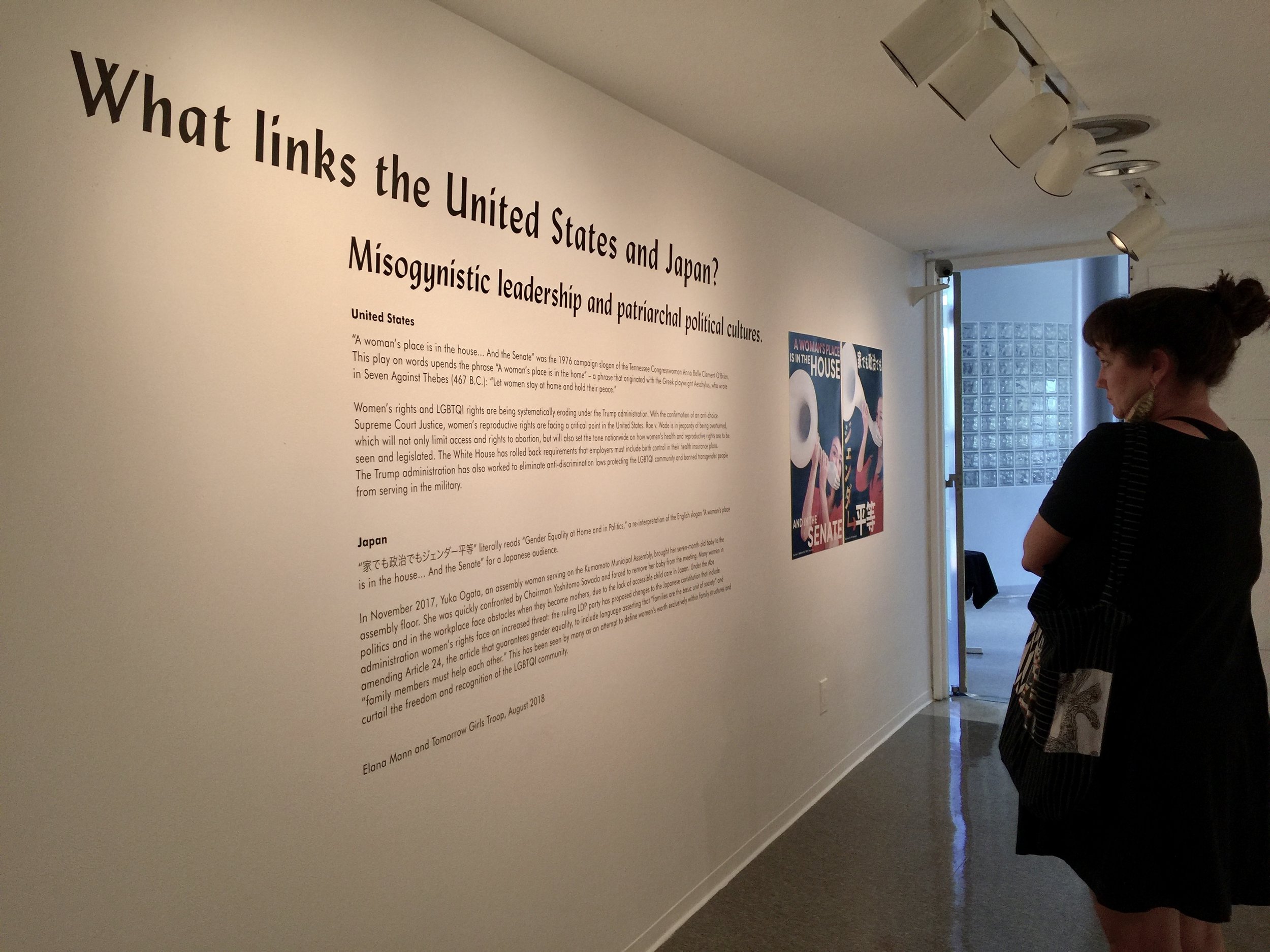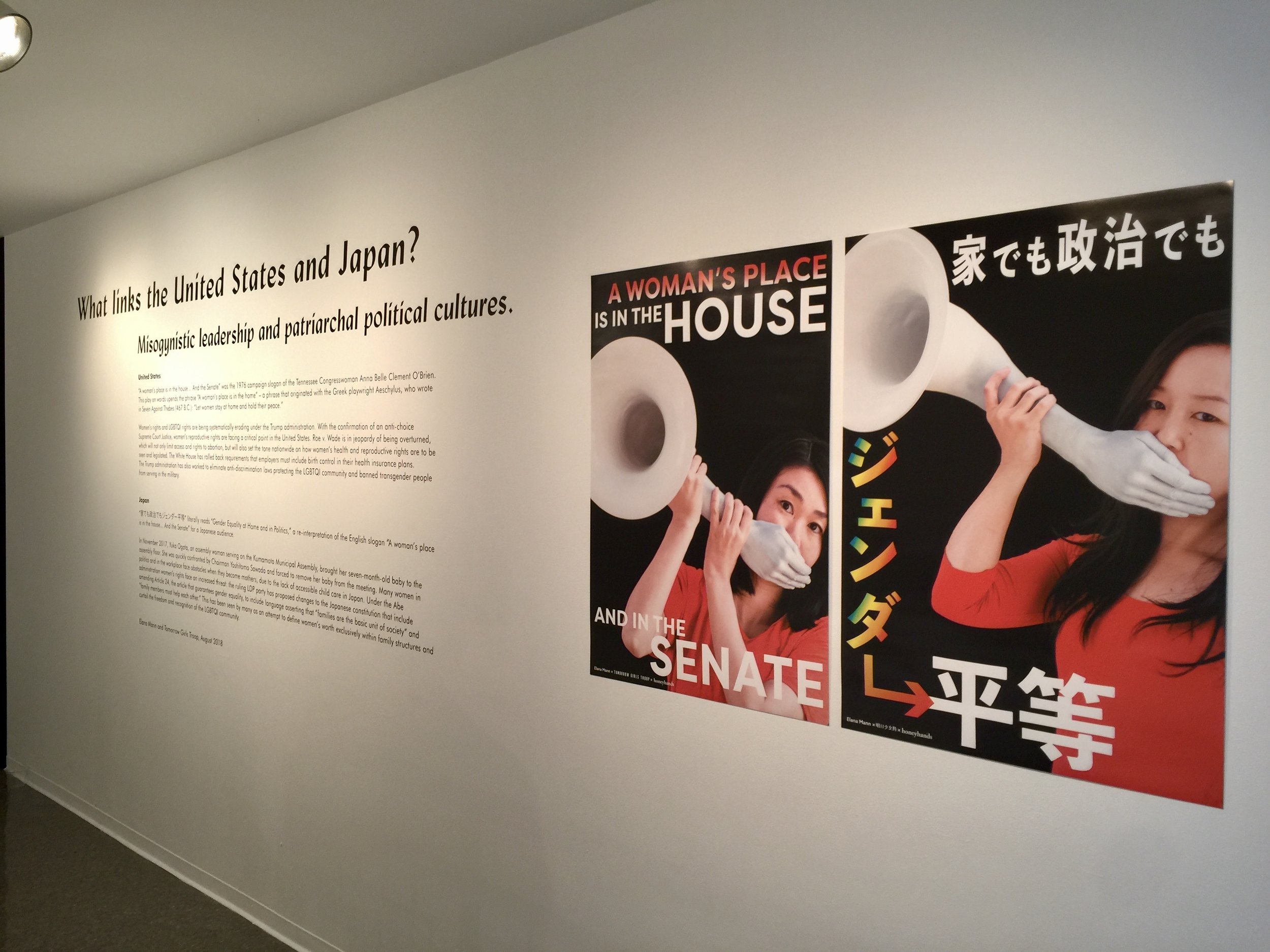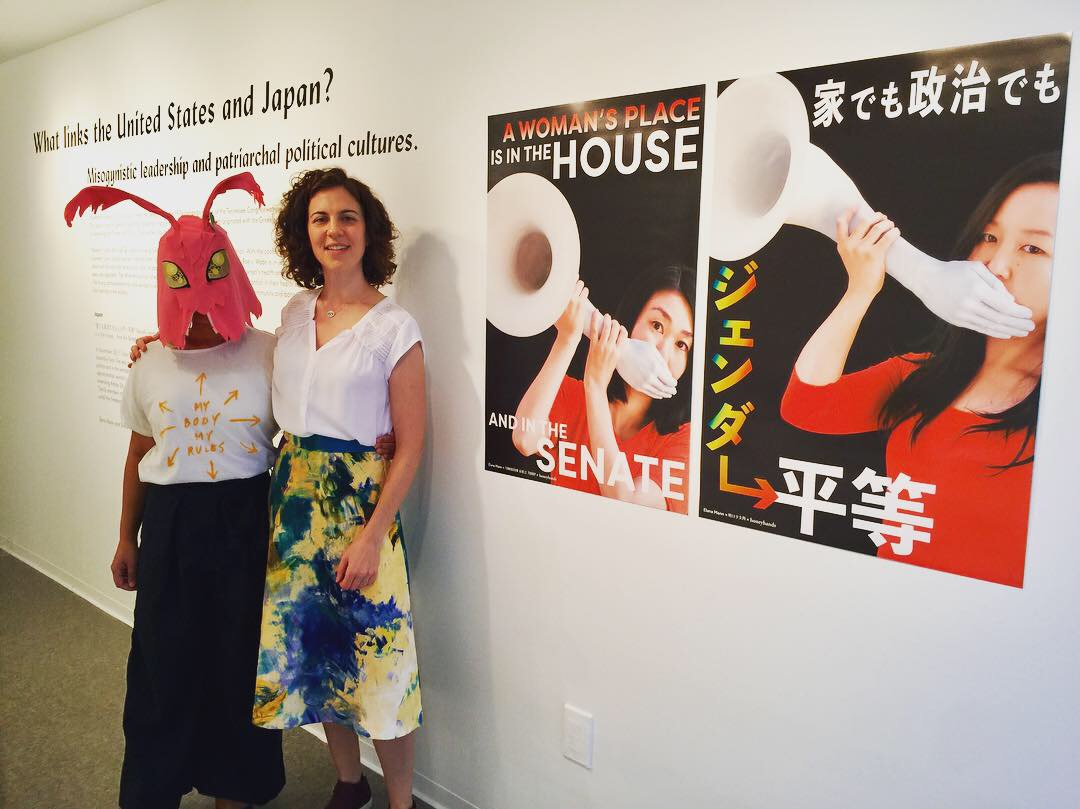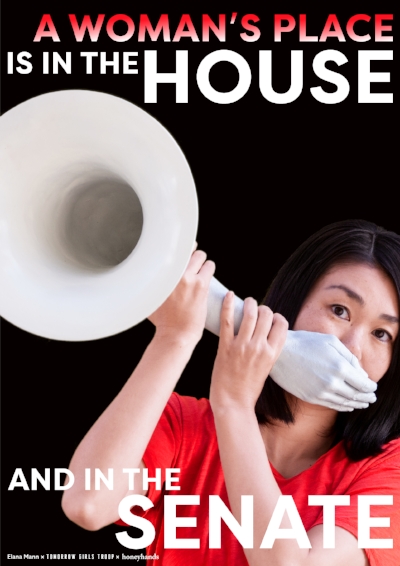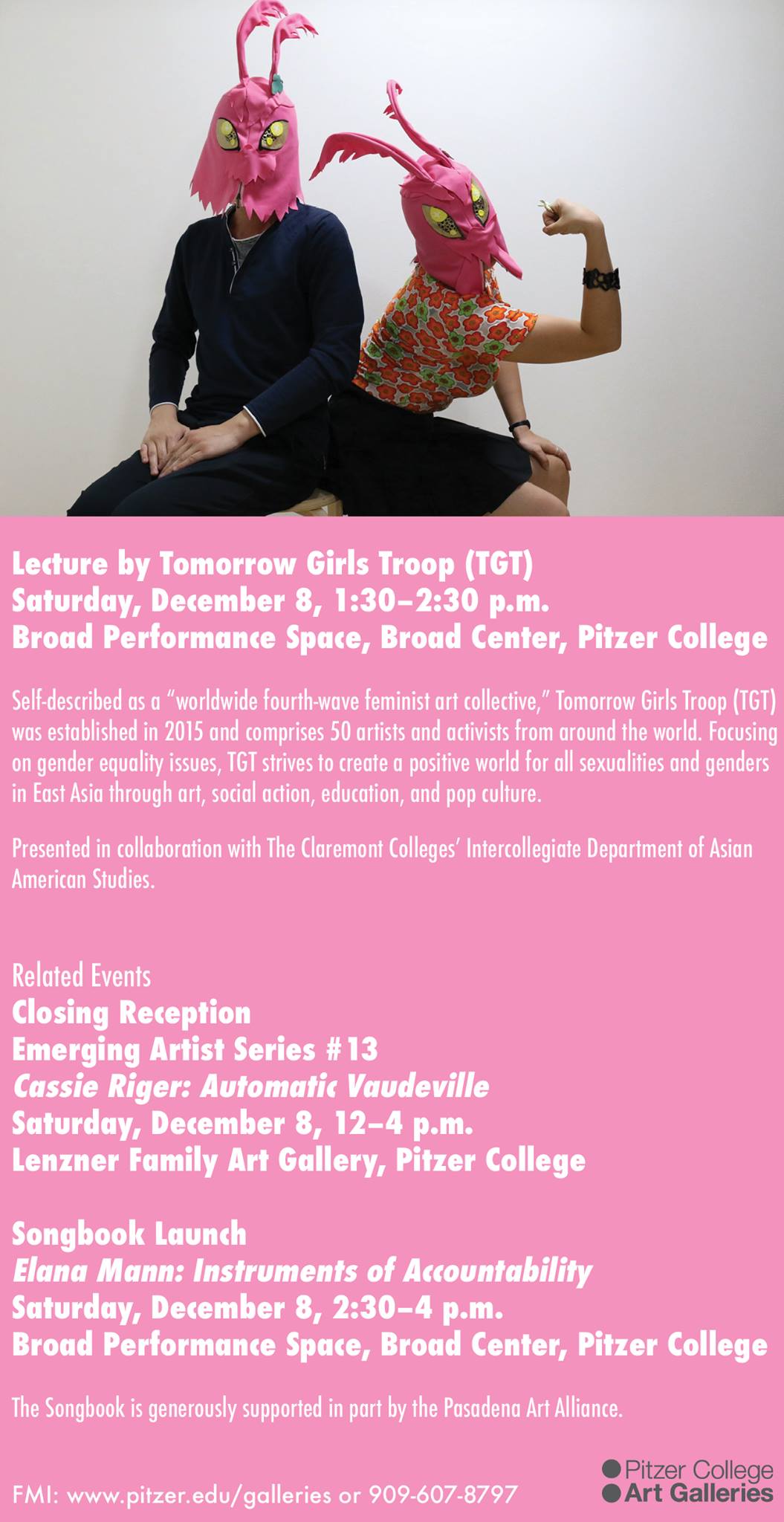A woman’s place is in the house… And the senate
家でも政治でもジェンダー平等!
(“Gender Equality at Home and in Politics,”)
2018
those posters are collaboration work with LA based sculptor Elana Mann and online feminist bilingual magazine honeyhands.
Sculpture by Elana Mann, Design by honeyhands (LoLa Rose) and Tomorrow Girls Troop.
What links United States and Japan?
Misogynistic leadership and patriarchal political cultures.
United States
“A woman’s place is in the house… And the senate” was the 1976 campaign slogan of the Tennessee congresswoman Anna Belle Clement O’Brien. This play on words puts the phrase “A woman’s place is in the home,” on its head—a phrase which originated from the Greek playwright Aeschylus, who wrote, in the “Seven Against Thebes,” 467 B.C.: “Let women stay at home and hold their peace.”
Women’s rights and LGBQTI rights are being systematically eroding under the Trump administration. Women’s reproductive rights are facing a critical point in the U.S. with the new supreme court justice due to be appointed in the near future. The current candidate for the position is predicted to cast the vote that will overturn Roe v. Wade, which will not only limit access and rights to abortion, but will also set a tone nationwide on how women’s health and reproductive rights are to be seen. The White house has rolled back requirements that employers must include birth control in the health insurance plans. The Trump administration has also worked to eliminate anti-discrimination laws protecting the LGBTQI community and banned transgender people from serving in the military.
Japan
“家でも政治でもジェンダー平等!” literally reads “Gender Equality at Home and in Politics,” a re-interpretation of the English slogan “A woman’s place is in the house… And the senate” for a Japanese audience.
In November 2017, Yuka Ogata, as assembly woman serving on the Kumamoto Municipal Assembly, brought her seven month old baby to the assembly floor. She was quickly confronted by Chairman Yoshitomo Sawada and forced to remove her baby from the meeting. Many women in politics and in the workplace face obstacles when they become mothers, due to the lack of accessible child care in Japan. Under the Abe administration women’s rights face an increased threat -- the ruling LDP party has proposed changes to the Japanese constitution that include amending article 24, the article that guarantees gender equality, to include language asserting that "families are the basic unit of society" and "family members must help each other." This has been seen by many as an attempt to define women’s worth exclusively within family structures and curtail the freedom and recognition of the LGBTQ community.
